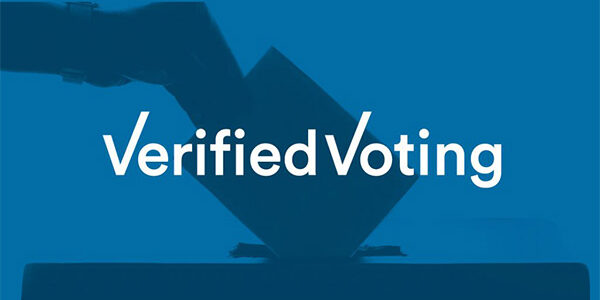March 3, 2023
Connecticut Government Administrations and Elections Committee
Legislative Office Building, Room 2200
Hartford, CT 06106
Via online portal
Dear Committee Members:
On behalf of Verified Voting, I write in support of S.B. No. 1150 regarding risk-limiting audits. Verified Voting is a nonpartisan nonprofit organization whose mission is to strengthen democracy for all voters by promoting the responsible use of technology in elections. Since its founding by computer scientists in 2004, Verified Voting has promoted voter-verified paper ballots and routine, rigorous post-election audits – especially risk-limiting audits – to check the accuracy of computerized voting systems.
As you know, the United States confronts unprecedented security threats to election systems – and to public confidence in election outcomes. To counter these threats, tabulation audits, such as Connecticut’s existing manual audit, are needed to check the results against the actual ballots cast. Risk-limiting audits (RLAs) are robust tabulation audits designed to efficiently confirm that election outcomes match what a full hand count of those ballots would reveal by manually examining a representative random sample of the ballots. These audits have been widely endorsed by security specialists and election officials. In fact, risk-limiting audits have been recommended by the American Statistical Association, U.S. Department of Homeland Security, the U.S. Senate Select Intelligence Committee, and many other experts as one element of a strong and resilient election infrastructure.
This legislation would allow for the successful implementation of RLAs in Connecticut, providing a strong basis for public confidence in election results. The bill gives the Secretary of State the time and authority to develop procedures and regulations related to RLAs, without overspecifying the details in legislation. It also wisely requires additional pilots in 2023, allowing registrars to gain additional experience with the process. Testing out how RLA implementation may work in practice is especially important as Connecticut considers other election reforms. The adaptive ballot comparison audits developed by the University of Connecticut also bring the goals of this legislation within reach.
We also offer a few suggestions on how this legislation might be improved. One of the strengths of the bill is that it requires a range of contests to be audited. However, we suggest reexamining and possibly easing the requirement to audit contests already subject to a recanvass, because of a close vote or a tie. Auditing these contests could be onerous and challenging for registrars to complete prior to certification, in some cases requiring a full hand count. We also recommend that the Secretary of State be required to develop audit procedures as part of a formal regulatory process, as other states have done, since it would allow an opportunity for public input and give the audit procedures greater legal weight.
Transparency is essential to building public trust in election outcomes, and by extension, the public must be given a meaningful opportunity to observe the audit and access audit data. While the bill requires audit results to “be open to public inspection,” we suggest requiring the Secretary of State to publish the audit results and any other data needed to verify the audit outcome, preferably by a specific deadline. (Some audit data, such as ballot manifests, should be published before the audit is launched.) It would also be helpful to strengthen the bill’s public noticing requirements, for instance, by requiring that public notice of audit proceedings be published a specific number of days in advance on the website of local officials and that of the Secretary of State.
Thank you for considering our comments and suggestions. RLAs are an important tool for verifying election outcomes, and we applaud your efforts to implement them in Connecticut. We would be happy to discuss further any provisions of the bill or anyof the suggestions we have outlined.
Respectfully submitted,
Chrissa LaPorte
Senior Policy & Technical Associate
